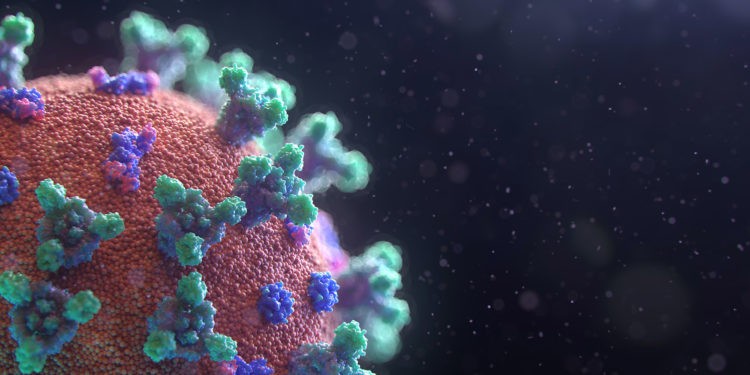Life of a Covid Long Hauler

For Covid-19 survivors searching for solutions, support can be found within the community.

What does it mean when someone says they are a Covid-19 long hauler? Also referred to as Long Covid, this is a heterogeneous syndrome that typically develops during or after an acute Covid-19 illness and lasts for a minimum of 12 weeks. Lacking explanation through other diagnoses, patients may experience myriad symptoms, including headaches, shortness of breath, fatigue, insomnia, anxiety, joint pain, nerve symptoms, and cognitive dysfunction. It is a roller coaster of symptoms and emotions that never seems to release its relentless grip.
As survivors continue to pursue treatments and solutions, they often feel ignored, unheard, and misunderstood. They may be suffering from any or all of the Long Covid recovery issues, such as pulmonary, cognitive, and physical strength issues. Even after leaving the hospital or rehabilitative care, these individuals still struggle and need help to rebuild their lives.
Maya McNulty of Niskayuna, New York, is one such survivor. After contracting Covid in March of 2020, Maya, 49, spent a total of 69 days in the hospital. Of those 69 days, Maya was in a coma for 30 days and on a ventilator for six weeks. She was in ICU for 35 of the 69 days and in a rehabilitation hospital for 34 days.
Maya went from being a highly successful businesswoman and entrepreneur to coming within an inch of her life. Now, roughly 21 months since she became ill, Maya, who was the first reported Covid-19 case in Schenectady, New York, continues to struggle with the aftermath of this illness. It has been an incredibly long and tumultuous journey, yet she surprisingly remains upbeat and spirited, even creating an online community (covidwellnessclinic.com) to support others experiencing similar issues as they all learn together how to navigate the Covid Long-Hauler life.
When it all began
When she was first admitted to the hospital in March of 2020, Maya’s oxygen level was at 60%. She was literally dying from her feet up and also sustained some brain damage. Fortunately, the medical specialists got to her in the nick of time. During her stay in the hospital and in subsequent rehabilitation, Maya was dealt many blows to her health. Her lungs collapsed; she had a stroke (of which they were not aware at the time), and she lost the ability to use the left side of her body. She had to be tube-fed for 55 days and lost her ability to eat, walk and talk. She essentially had to relearn all of the skills healthy people take for granted every day. She also spent three months in a wheelchair.
Maya returned home on May 28, 2020, but found it challenging to improve as quickly as she would have liked.
“It took me six months just to be able to walk up the stairs,” she recalled. “I had help from an in-home nurse, an occupational therapist, and a physical therapist for eight weeks. I also did outpatient therapy for 10 months. I lost my hair, my voice, and my memory. I had to learn how to read, write and spell again.”
Although she is not fully recovered, Maya is walking about 7,000 steps a day. She still gets fatigued and winded, even after all this time, and struggles with a persistent cough and shortness of breath. Every day, however, she persists, and part of her recovery rests in supporting others with this illness through her online community. Education is a key component of her strategy.
The Seven Long Haul Symptoms a Person Can Develop After Contracting Covid-19
“There are seven long covid signs that might trigger PTSD,” Maya explained. “These include insomnia, chronic crying, hallucinations (due to lack of sleep, low energy, and medications), reactions to medications (vomiting, dry mouth, rashes), heightened emotions, night sweats, and lack of self-care. Sometimes people just want to give up.”
There are days Maya admits she lacks the ambition to move forward, but she will not allow herself to succumb to such emotions for long. She understands this is a complex world to understand, especially since there is no new science for doctors to follow on these issues.
“Doctors use old science to determine recovery times, and I was initially told it would take about 12 months for me to recover,” she noted.
“But here I am, 21 months later. Long Covid is more than just fatigue, anxiety, shortness of breath, and heart palpitations. It is so much more.”
Even this far along in her post-Covid journey, Maya continues to embrace new therapies to help her overcome the trauma of her experience. Most recently, she began taking guitar lessons so she can learn to re-use her fingers and trigger her brain to help with her reading and writing skills.
Expect the Unexpected
“At 19 months post-Covid-19, my doctors suggested I schedule an MRI because I was losing my balance often and losing the feeling in my arms and legs,” said Maya.
After 21 months of bi-weekly blood work, the MRI results indicated Maya had sustained two strokes, one while she was in the hospital and another in September of 2021.
Based on the MRI, the first stroke appeared older. It was found on the cerebral hemisphere with a few scattered small periventricular and subcortical white matter lesions which indicated she had a stroke while she was in the medical coma. The second stroke seemed to have occurred in September of 2021, which would explain her constant exhaustion and intense pain she experiences daily now.
“These findings explain the chronic pain, clogged ear issues, balance problems, migraines, and aching hands and feet,” emphasized Maya, who realizes her post Covid-19 recovery journey is still in progress. “This is a raw look at the behind-the-scenes of Long Covid.”
Maya continues to share her story to save lives, educate and help her heal from this debilitating and traumatic experience.
“I died and came back,” she reflected. “And this is my assignment.”
Disclaimer: Covid Wellness Clinic does not profess to heal, treat, cure, diagnose, or mitigate the effects of Covid-19.






